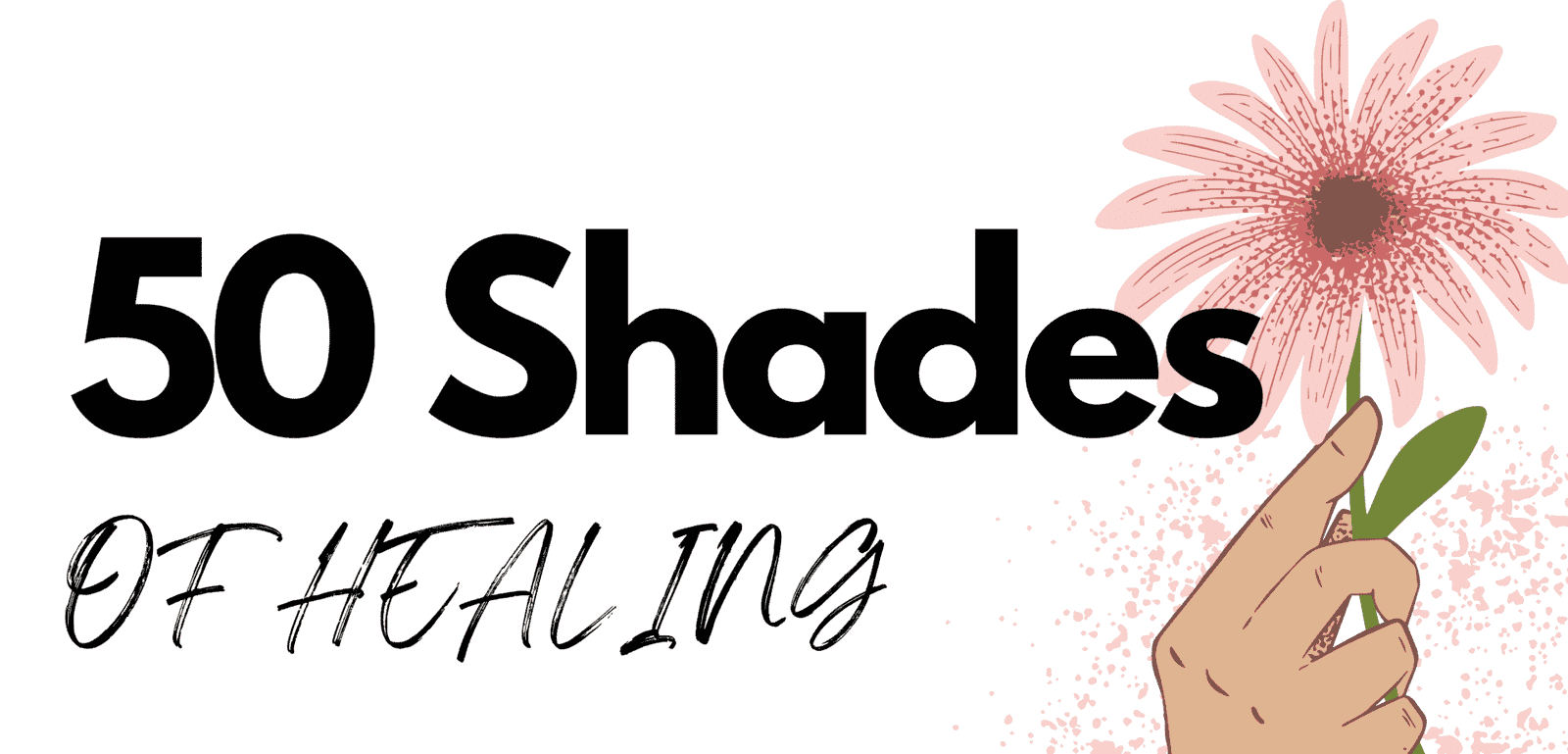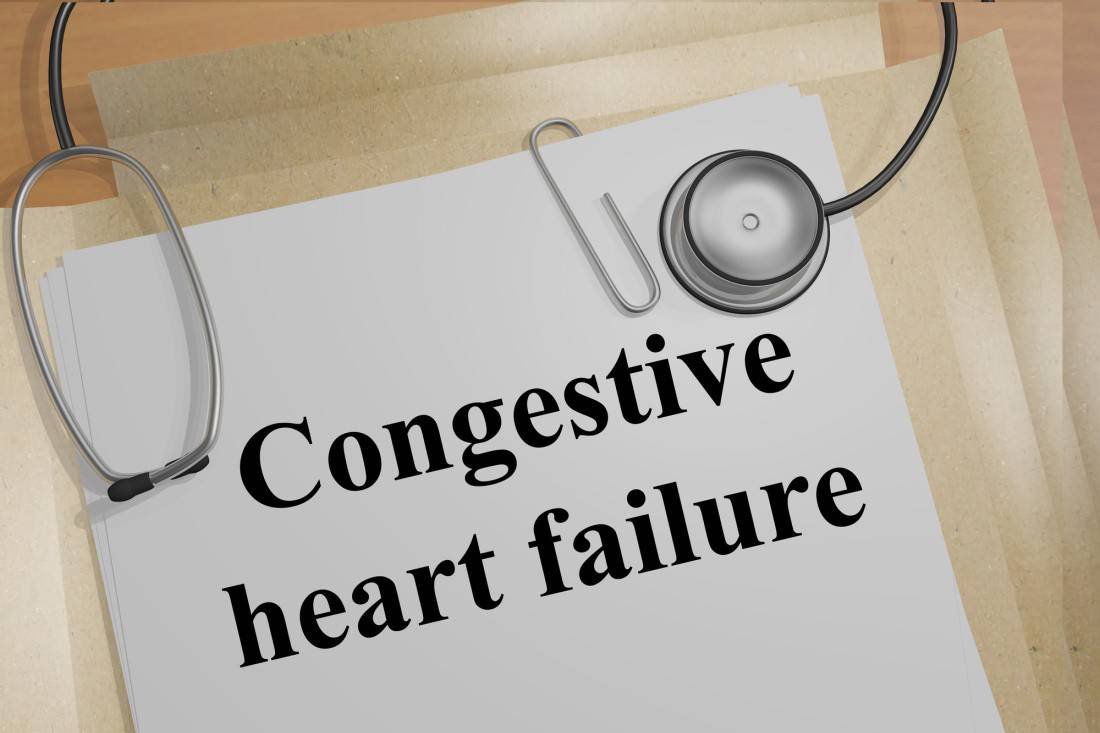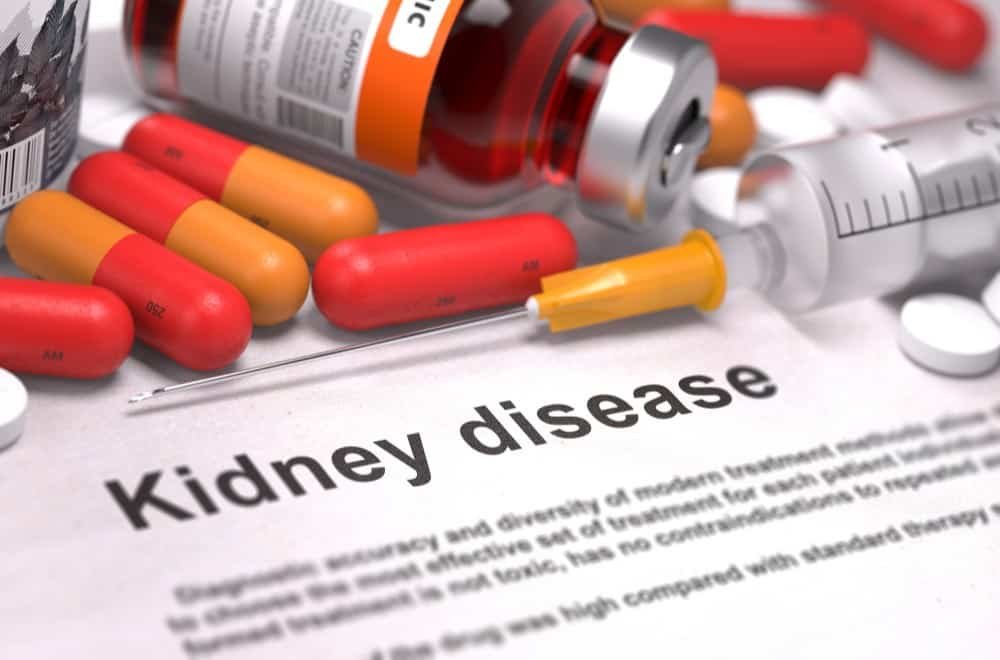Anemia in Chronic Kidney Disease
Did you know that anemia is common in chronic kidney disease (CKD)? In fact, about 50% of people with CKD have anemia. Anemia can make you feel tired and weak, and it can also cause other health problems.
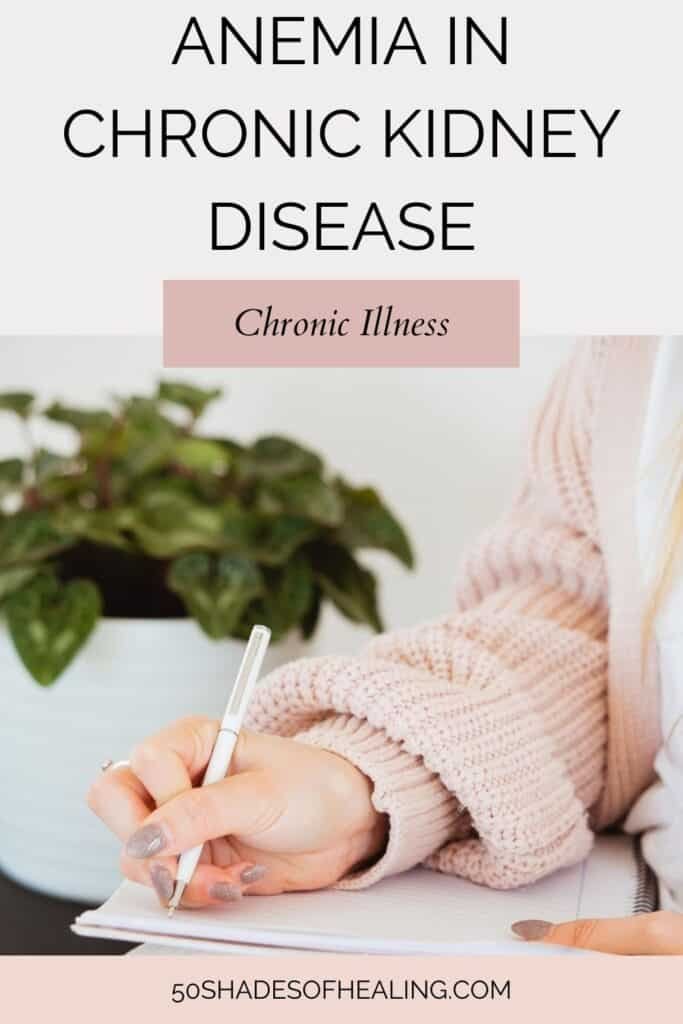
But don’t worry, there are ways to treat it!
In this blog post, we’ll discuss the causes of anemia in CKD and the best ways to treat it. Stay tuned for more information!
Chronic Kidney Disease (CKD) is a chronic and progressive disease wherein the kidneys have sustained damage and injury due to recurrent infections or other comorbidities.
Two of the main causes of CKD are uncontrolled diabetes and hypertension.
The irreversible damage to the kidney results in many complications.
The renal system is one of the most important organ systems in the body.
During shock, blood is shunted to go to 4 vital organs to maintain life: the brain, heart, lungs, and kidneys.
Want to make PASSIVE INCOME? I do and LOVE IT! If you want to know how you make money selling digital products on ETSY, take this COURSE. If you want to know how to write faster and make money as a freelancer, take this COURSE. If you want to learn both plus Affiliate Marketing, Own a PLR Store, and much more, join PIPS-Passive Income Pathways Membership. You will get all the courses FOR FREE.
The kidneys function to remove extra fluid and wastes from the body. They also remove cell byproducts and maintain water and electrolyte balance in the body.
Aside from these, the kidneys control blood pressure, make red blood cells, and keep the bones healthy and strong.
When a patient has Chronic Kidney Disease, all these functions are altered, hence the complications are plenty.
One of the major complications of CKD is anemia.
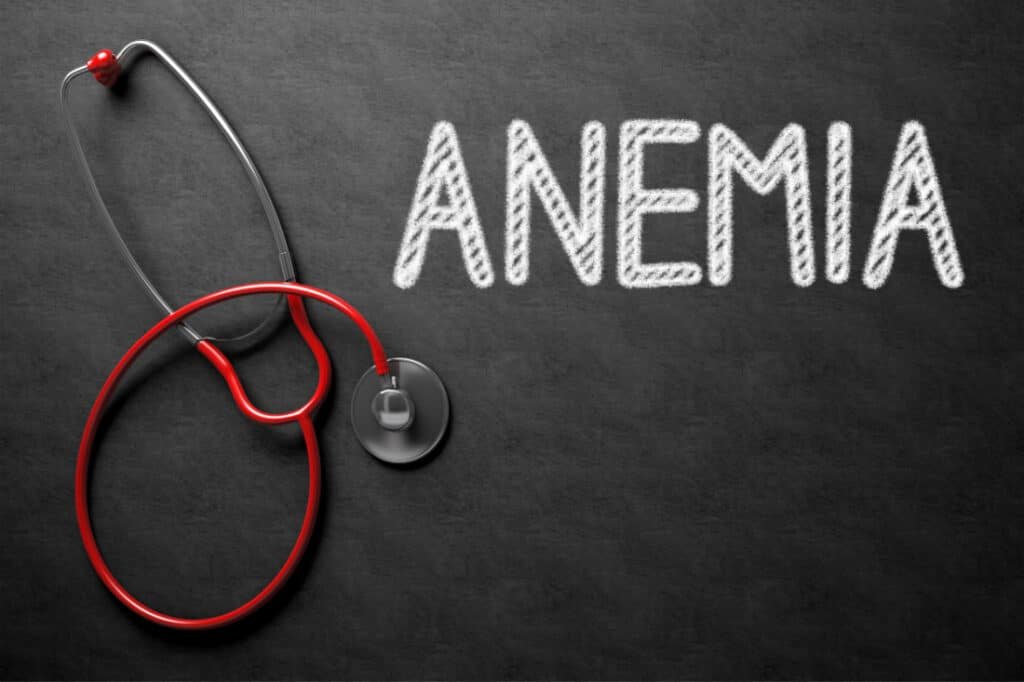
What is Anemia?
Anemia is a common condition. This usually occurs in pregnant women, those with blood dyscrasias, people with chronic disease, and people with CKD.
It is one of the most important complications of Chronic Kidney Disease. Moreover, other conditions can also cause anemia such as blood loss, inflammation, poor nutrition, and infections.
The kidneys produce the hormone erythropoietin (EPO), which stimulates the bone marrow to produce red blood cells.
These red blood cells carry oxygen into tissues and organs in the body to function well.
Without oxygen, there is ischemia or infarction, resulting in deficits in the output and performance of these organs.
In CKD, the kidneys cannot produce enough EPO, which lowers the production of red blood cells, resulting in anemia.
This usually occurs early in Chronic Kidney Disease and often worsens as CKD progresses.

The signs and symptoms of anemia include:
- Pale-looking
- Always feeling tired
- Easy fatigability
- Low energy for daily activities
- Poor appetite
- Drowsiness
- Light-headedness or dizziness
- Shortness of breath
- Headaches
- Palpitations or rapid heartbeat
Anemia is mainly diagnosed through blood tests: complete blood count, iron levels, vitamin B12 levels, and folate are needed to confirm the type and severity of anemia.
If your Chronic Kidney Disease is undiagnosed, urine tests and imaging studies can also be done for further investigation on the cause of anemia.
Treatment for anemia depends on the severity of the condition. For mild anemia, supplements like vitamin b12, folate, and iron are given in tablet form.
However, for severe anemia, injectable EPO is prescribed, especially for those with CKD.
For those undergoing dialysis for Chronic Kidney Disease, aside from injectable EPO, iron infusions through an intravenous route are also given. EPO injectables won’t work if iron is too low, hence the need for iron supplements or infusions.
It is important to note that iron supplements can cause gastric irritation and dark stools. Aside from these, nausea, metallic taste in the mouth, indigestion, constipation, and abdominal pain are also common.
Furthermore, blood transfusions can also be done when anemia is severe, but this is done with caution as it can cause an allergic reaction, iron overload, and antibody production, which can, later on, complicate the chances of a kidney transplant.
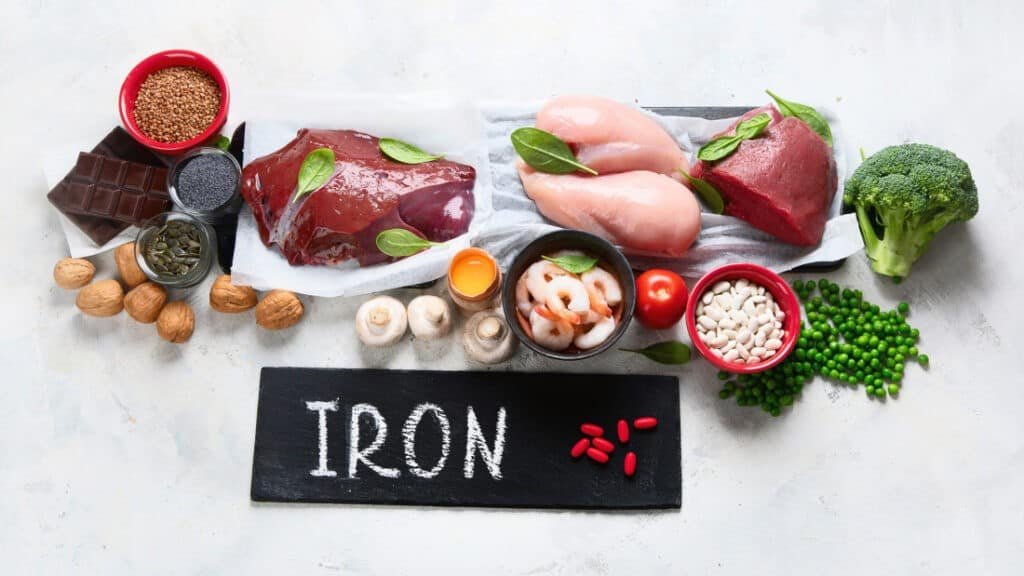
Diet for Anemia and Chronic Kidney Disease
CKD patients are encouraged to maintain a kidney-friendly diet. For anemic patients, food that is loaded with iron should be included in the diet.
A kidney-friendly eating plan will help slow down damage to the kidneys. This will also help control their blood glucose level and blood pressure.
Your kidney-friendly diet should have the right amount of protein, fat, and carbohydrates. Limiting potassium is important for people with CKD.
Foods low in potassium include apples, cranberries, grapes, pineapples, and strawberries. Vegetables such as cauliflower, onions, peppers, radishes, summer squash, and lettuce are good sources of potassium.
Moreover, pita, tortillas, white bread, beef, chicken, and white rice have low potassium content and can be included in the diet.
Additionally, phosphorus should also be limited for people with CKD. Too much phosphorus will make the bones brittle and break easily.
What type of anemia is associated with chronic kidney disease?
Anemia of chronic renal disease, also known as anemia of chronic kidney disease (CKD), is a form of normocytic, normochromic, hypoproliferative anemia.
When does anemia start?
People with chronic kidney disease may experience anemia as their condition progress, but it is most common in stages 3-5.
Can iron infusion help kidney function?
Iron deficiency is a common problem for people with chronic kidney disease. Oral or IV therapy can be used to manage it, but for those who are also iron-deficient intravenous treatments work faster than oral ones do and thus should be preferred if possible.

These foods should be avoided in Chronic Kidney Disease:
- Whole-grain bread
- Bran cereals and oatmeal
- Nuts and sunflower seeds
- Dark-colored colas
Fluids should also be limited as CKD patients cannot take in extra fluid. Too much fluid will congest the lungs, cause high blood pressure, and heart failure.
Cut down on foods that contain water. These include soups, vegetables, fruits, and ice cream.
Here are some tips on how to limit fluids in your diet:
- Measure your fluids.
- Use small cups
- Limit sodium in your diet
- Chew gum when you feel thirsty, then rinse your mouth and then spit it out.
Lastly, supplementary vitamins should be taken such as vitamin B12, folate, and iron. Vitamin D and calcium should also be included in the diet.
Here are some kidney-friendly recipes:
- 40-Second Omelet – low phosphorus, low potassium, high protein, low sodium
- 60-Second Salsa – vegetarian, low phosphorus, low potassium, low protein, low sodium
- Acorn Squash Baked with Pineapple – vegetarian, low phosphorus, high potassium, low protein, low sodium
- Alfredo Sauce – vegetarian, low phosphorus, low potassium, high protein, low sodium
- Almond Pecan Caramel Popcorn – vegetarian, high potassium, high protein, low sodium
- Anytime Energy Bars – vegetarian, low potassium, high protein, low sodium
- Apple & Cherry Chutney – vegetarian, low phosphorus, low potassium, low protein, low sodium
- Apple and Cream Cheese Torte – low phosphorus, low potassium, high protein, low sodium
- Apple Bran Muffins – vegetarian, high potassium, high protein, low sodium
- Beef or Chicken Enchiladas – low phosphorus, low potassium, low protein, low sodium
Subscribe to My Email! Self-care is so important, but it can be hard to know where to start. That’s why I created a self-care journal, to help you make small, everyday changes that will have a big impact on your life. And when you subscribe to my email list, you’ll get the journal for free! Plus, you’ll receive great emails packed with wonderful information and free printables. You won’t want to miss out on this valuable content. Click this button and sign up now!
If you have CKD and are feeling tired and weak, be sure to talk to your doctor about getting tested for anemia. Treatment for anemia can help you feel better and improve your overall health.
